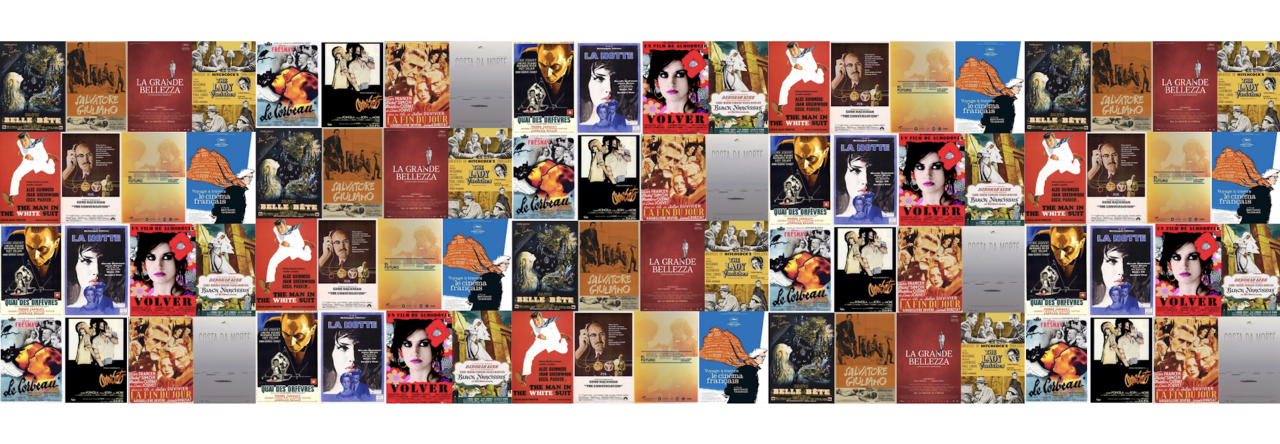EIFF 2019 runs 19th – 30th June, and earlier this week they announced their full programme. As I’ve previously highlighted, their Country Focus this year is Spain – so having seen the details of the full programme, I thought that I’d pick out five Spanish-related recommendations.
Apuntes para una película de atracos / Notes for a Heist Film (Elías León Siminiani, 2018)
This is on my list of Spanish films from last year that I want to catch up with both because I liked León Siminiani’s previous film (Mapa (2012), which likewise took the director as a central figure within the film, although that was more of a personal narrative), and also because it looks deadpan funny. It is not available on DVD, but it is on Filmin (without subtitles). Ticket details (two screenings).
Arrebato / Rapture (Iván Zulueta, 1979)

I’ve already made my love for this film clear in the past – I’ve not had the chance to see it on the big screen (and I can’t go to Edinburgh on the day that it’s screening), and would encourage anyone who will be at EIFF to get a ticket NOW. Out of all of the Spanish retrospective titles, this should be your priority. Ticket details (one screening).
La ciudad oculta / The Hidden City (Víctor Moreno, 2018)
La ciudad oculta (Trailer) from Víctor Moreno on Vimeo.
I mentioned this one at the end of my 2018 round-up (which mainly detailed things that I hadn’t seen yet). Moreno’s previous film, Edificio España / The Building (2013) (which I wrote about at length here – and also recommend), captured the deconstruction (and intended refurbishment) of a skyscraping monument to Franco – this one appears to be the inverse, as he explores deep underground and the hidden realm under the city of Madrid. Longtime readers will know that I can’t resist films that explore unusual architectural spaces. Ticket details (two screenings).
Icíar Bollaín retrospective
Yes, I’m cheating here by picking a group of films rather than singling out one. Contrary to my initial impression when they first announced this retrospective, it does look like they are screening all of the feature films directed by Bollaín. I think that Te doy mis ojos / Take My Eyes (2003) is the best encapsulation of her career; it is not an easy watch (characteristically nothing is sugarcoated or simplified neatly to reassure audience expectations), but boasts two outstanding performances from Laia Marull and Luis Tosar. The bulk of Bollaín’s films are available on DVD with subtitles (some of them only as imports from Spain, but some have UK editions) and in those circumstances I tend to prioritise titles that aren’t available (or aren’t available with subtitles in a home viewing format), which in this case would point you to ¿Hola, estás sola? / Hi, Are You Alone? (1995 – Bollaín’s feature debut as a director) and Flores de otro mundo / Flowers from Another World (1999). Collectively the films illustrate Bollaín’s interest in the breadth of female experience, be that in family, love, or work – each film manages to encompass a range of lives and experiences, all looked at with compassion and solidarity. You can find ticket details for individual films by clicking on the titles on this summary page.
Shorts from Galicia

The Galician shorts included in the programme are:
- Fajr (Lois Patiño, 2016)
- Homes / Men (Diana Toucedo, 2016)
- A liña política / The Policy Line (Santos Díaz, 2015)
- Matria (Álvaro Gago, 2017)
- A nena azul / The Blue Child (Sandra Sánchez, 2018)
- Rapa das bestas / Wild Mane Crop (Jaione Camborda, 2017)
I have written about a selection of Galician shorts previously (in relation to Curtocircuito in 2015), and will happily recommend anything that features work by Lois Patiño sight-unseen – unfortunately I won’t be in Edinburgh on the day this programme screens, otherwise this would definitely be something I would attend. Ticket details (one screening). There is also a programme of contemporary Spanish short films, which will undoubtedly also be worth checking out – Spain has a rich culture of short filmmaking, and you can frequently encounter genuine innovation and experimentation within shorts in a way that doesn’t necessarily often get seen in relation to features.
I will be reviewing a few of the Spanish films for Eye for Film (I seem to own most of the retrospective titles on DVD), so expect further posts on Spanish films at EIFF next month.

